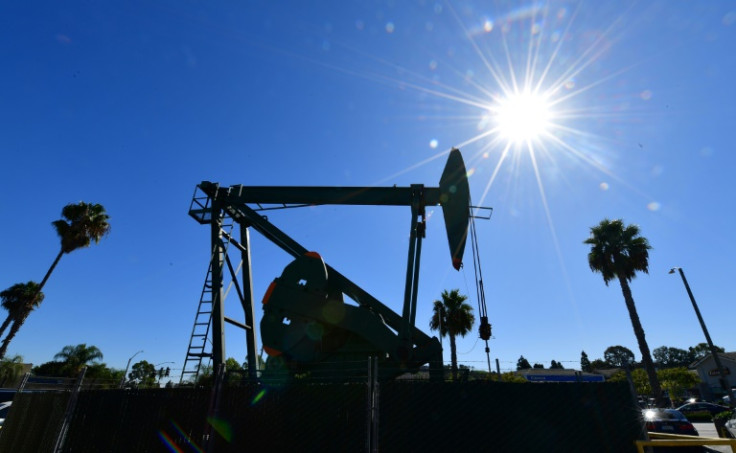Oil Market In 2024: A Bullish Prediction

Oil had a smooth ride in 2003. The first part of the year traded in the $70.28-79.47 per barrel range, jumped to $89,19 in the second part and ended very close to where it began at $72.47.
That's a significant difference from 2022 when the black gold had a wild ride. It began the year at $82.72 per barrel, raced to $114 toward the middle and ended at $76.95.
Athens-based oil forecaster Kosmas Megaloeconomou expects volatility to return in the oil market, with prices trending higher throughout the year.
Applying a seasonality pricing model (SPM), he predicts oil prices to trade up in the first three months; then they will correct in the fourth month before resuming their upward trend to end the year higher.
Specifically, Megaloeconomou predicts the average annual price in 2024 to be $87.50 versus $77.65 in 2023, an increase of +12.7%.
In addition, he sees the December 2024 average monthly price at $102.76, up 41.8% from the December 2023 average price of $72.47.
Oil analyst and Greek Chamber of Commerce and Industry counselor Fanis Matsopoulos is skeptical about predictions for crude oil prices for the new year due to geopolitical events that cause extreme oil market volatility.
One of these events is the rising tensions in the Red Sea, with the Houthi attacks forcing sea carriers to travel via the Cape of Good Hope to avoid the Suez Canal, a critical choke point.
"That means tankers will need almost three times more days at sea, which will trigger concerns about the smooth supply of crude oil, which will be expressed in higher prices to secure more quantities," Matsopoulos told International Business Times.
If the crisis escalates and spreads to the Strait of Hormuz, Matsopoulos sees a lasting impact on oil prices. "In such case, the scenario of the Strait of Hormuz's closure will revive, which means that more than 20 million barrels of daily export from this area will slow down if not stopped, resulting in a tremendous reduction of the global oil supply," he elaborated. "The immediate effect will be the skyrocketing of the price to three-digit level even higher than $200 per barrel."
Rod Skyles, blogger with The Unconventional Economist, agrees. "Looking forward on the price of oil, the commodity's sensitivity to geopolitical events and economic conditions can make it difficult to foresee price movements in advance accurately," he added.
Nonetheless, he, too, sees higher oil prices due to supply constraints. "The supply side of oil, with the cuts in production and the political unrest in key areas of the globe, would suggest upward-moving prices," he said. "In this context, having the prices go down as much as they have indicates falling demand, signifying a global recession has already begun."
Skyles casts a wary eye on several factors that influence oil prices like the escalation by Iranian-backed rebels attacking ships going through the Suez Canal, which could choke supplies to significant markets in Europe from the Middle East and push prices higher.
Then, there's the end of monetary tightening in the U.S. and Europe. "If the Fed moves aggressively to reduce rates and 'print' more dollars, which is highly inflationary, oil could react by adjusting for a lower-valued dollar," he added. "If these things occur and oil prices don't go up, or worse, go down, this would indicate demand destruction, resulting from a major global recession."
Matt Willer, managing director and partner at Phoenix Capital Group Holdings, LLC, joins Matsopoulos in expressing his skepticism over oil price predictions. "At the end of the day, longer-term pricing trends will settle into the supply-demand equilibrium," he said. "On a purely unemotional basis, understanding that commodities are challenging to predict, a modest rise in oil price is likely as interest rates soften, U.S. dollar firms and global economies improve, the SPR must be addressed and at least partially refilled. "
© Copyright IBTimes 2024. All rights reserved.












